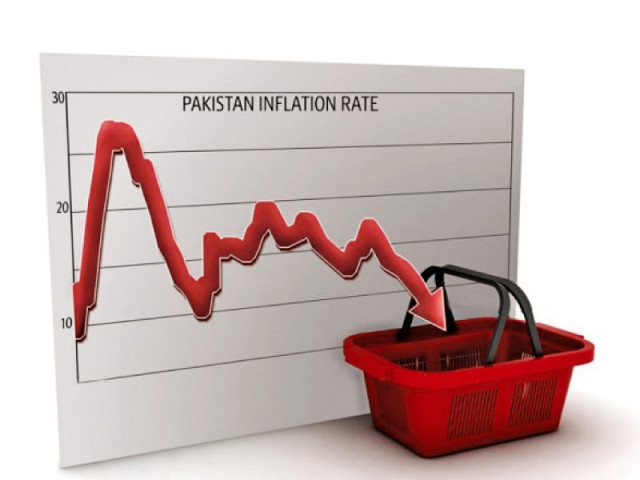Deflationary pressure: Consumers see further dip in inflation, reveals survey
Consumer Confidence Index for January rises 10.4% over the last survey

The paper concludes that the bias is entrenched for low-income, less educated, female and younger respondents. CREATIVE COMMONS
The general public is expecting low inflation in coming months, a recent survey shows.
Lower expected inflation for the next six months is the dominant view among the respondents of the January edition of the Consumer Confidence Survey, which is jointly conducted by the State Bank of Pakistan (SBP) and the Institute of Business Administration (IBA) every two months.
The survey covers three broad themes: overall consumer confidence indices, inflationary expectations and other key highlights about households’ perception of important indicators.
It reveals Pakistanis believe prices of everyday items and services will increase at a slower-than-usual pace in months ahead. It is important to note that the expectations about inflation actually play a most significant role in determining the overall price level in an economy. Economists believe prices go up partly because people expect them to rise.
According to a recently released research paper on inflation expectations and economic perceptions written by researchers at Yale University and the SBP, inflation expectations are ‘systematically exaggerated’ in developing countries like Pakistan.
The paper concludes that the bias is entrenched for low-income, less educated, female and younger respondents.
“We also find that the recent fuel and energy price (revision) announcements play an important role in determining perceptions of inflation, which suggests that these commodities play an anchoring role for inflationary expectations,” it said.
Perhaps it explains why Prime Minister Nawaz Sharif personally announces every time fuel prices are adjusted downwards. Hearing their prime minister announce a cut in petroleum prices clearly dampens overall expectations about inflation.
Going by the recent shift in respondents’ perceptions about economic conditions, Sharif’s strategy is clearly working.
The survey uses the Consumer Confidence Index (CCI) to measure households’ perceptions about the economy. Showing an increase of 10.4% over the last survey released in November, the CCI stood at 153.93 points in January – its highest level since its inception three years ago.
Similarly, both sub-indices of the CCI, which measure households’ current and future economic conditions, registered a significant rise in January over November.
Year-on-year inflation during the first half of the current fiscal year clocked up 6.1% compared to 8.9% recorded over the same period of preceding fiscal year.
According to Taurus Securities Head of Research Zeeshan Afzal, declining prices of global commodities, lower food inflation, base-effect of major electricity price hikes of October 2013 and lower government borrowings from the SBP resulted in a prolonged dip in inflation. He expects inflation will remain between 4% and 5% during January-June.
The central bank brought down the key interest rate last week by 1% to 8.5% mainly on the back of declining inflation. It has also revised its inflation forecast for 2014-15 from 8% to 4.5%-5.5%.
The percentage of households expecting a decline in the prices of energy items over the next six months in January was 12.2% as opposed to only 4.7% in November. The percentage of households anticipating a decrease in the prices of food items over the next six months in January was 7.1% as opposed to 3.9% in November.
The survey also revealed that 15.7% of more than 1,800 surveyed households were ‘positive’ about government policies in January as opposed to just 10.7% in November. Similarly, the percentage of households expressing interest in buying a car or a house in the next six months also increased in January compared to November.
Published in The Express Tribune, February 1st, 2015.
Like Business on Facebook, follow @TribuneBiz on Twitter to stay informed and join in the conversation.



















COMMENTS
Comments are moderated and generally will be posted if they are on-topic and not abusive.
For more information, please see our Comments FAQ